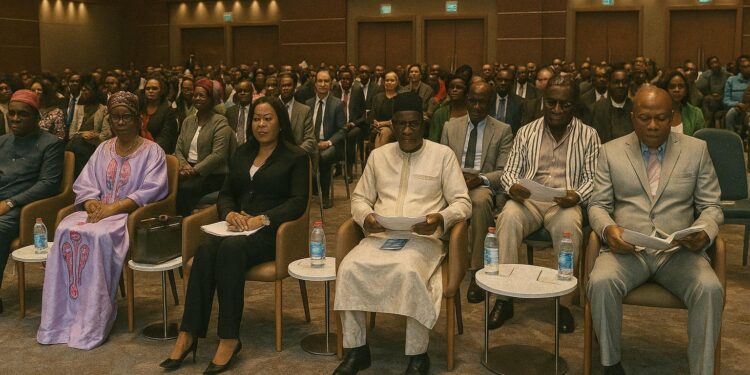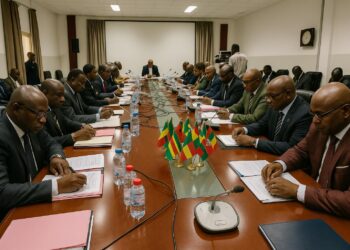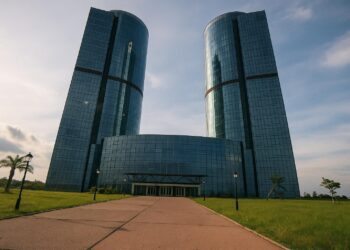Brazzaville Sets the Stage for Fora’ess 2026
With measured confidence and logistical precision, Brazzaville has been confirmed as the venue for the second African Forum on Social and Solidarity Economy (Fora’ess), scheduled for 20-24 January 2026. Preparatory consultations concluded on 10 July in the Congolese capital, drawing academics, cooperative leaders, municipal officials and representatives of continental bodies. Their mandate was to refine the thematic architecture and operational blueprint of a gathering expected to attract more than a thousand delegates.
Why the Social and Solidarity Economy Matters to Africa
Across the continent, approximately 80 percent of employment is generated within the informal sector, according to the African Development Bank. The social and solidarity economy (SSE) is increasingly viewed as a structured pathway out of informality, offering governance models that privilege collective ownership, democratic participation and reinvestment of surplus for community benefit (UN IATF on SSE, 2023). International Labour Organization Recommendation 204 further underlines SSE’s potential to formalise work while safeguarding social protection.
During the Brazzaville consultations, Malick Diop, president of the forum, framed SSE as “a lever capable of catalysing durable and inclusive development”. His assessment resonates with recent OECD research, which records that cooperatives retained or created close to 280 000 jobs in sub-Saharan Africa during the pandemic period (OECD, 2022). In many respects, SSE is no longer a peripheral experiment but an integral component of the African Union’s Agenda 2063 pledge to ‘leave no one behind’.
Congolese Government’s Strategic Vision for Inclusive Growth
Congo-Brazzaville’s authorities perceive Fora’ess 2026 as both a diplomatic opportunity and an instrument of domestic policy. Minister Inès Nefer Ingani Voumbo-Yalo, whose portfolio encompasses the promotion of women and the informal economy, emphasised that SSE “is a source of sustainable employment, innovation and strengthened social cohesion”. The ministry’s strategy document for 2024-2028 identifies cooperatives in agriculture, renewable energy and digital micro-finance as priority sectors capable of absorbing youth unemployment while diversifying GDP away from hydrocarbons.
Officials at the Ministry of Foreign Affairs note that hosting the forum aligns with President Denis Sassou Nguesso’s commitment to the African Continental Free Trade Area, as SSE enterprises can scale cross-border services without undermining local ownership. By offering a venue for continental dialogue, Brazzaville positions itself as a diplomatic hub that marries macro-economic stability with community-level entrepreneurship.
Regional and International Stakeholders Rally Support
Early signals from multilateral partners are encouraging. The United Nations Economic Commission for Africa has proposed a side-event on impact measurement standards, while the African Export-Import Bank is examining guarantee facilities tailored to cooperative finance. The French Development Agency, already active in Congo’s dairy and forestry cooperatives, has expressed willingness to extend technical assistance under its 2025-2029 regional programme. Civil-society networks such as RIPESS-Afrique and the Pan-African Farmers Organisation are preparing position papers to be debated in Brazzaville.
The planned creation of a local organising committee and thematic commissions—ranging from climate-smart agriculture to digital platforms—illustrates the forum’s ambition. According to sources close to the secretariat, draft proposals include a ministerial round-table on fiscal incentives for SSE entities and a youth innovation fair. These design elements build upon lessons from the inaugural Fora’ess held in Dakar in 2023, where delegates called for clearer regulatory frameworks and continent-wide data collection.
Outlook: From Informal Resilience to Formal Prosperity
Expectations are high that the Brazzaville forum will deliver a roadmap articulating how SSE can transition from ad-hoc survival mechanism to structured growth engine. Analysts at the Economic Policy Research Centre in Kampala argue that mainstreaming SSE could add up to 2 percent to continental GDP by 2030 if supported by ecosystem financing and harmonised legislation. Although such projections are contingent on political will, Congo-Brazzaville’s stewardship of Fora’ess offers a tangible demonstration of that resolve.
Brazzaville’s riverbanks have long served as a crossroads of trade and ideas. In January 2026 they will provide the backdrop for a conversation on resilience that is both deeply local and unmistakably global. By foregrounding cooperation over competition, the city is poised to reaffirm the principle that economic models centred on human dignity can thrive, even amid complex geopolitical headwinds. For diplomats and investors alike, the forthcoming forum may well signal that Africa’s next growth frontier lies not solely in extractive commodities but in the collective ingenuity of its people.












































